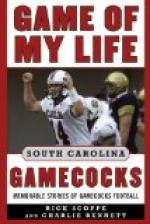SAND HILL DAYS.
Col. M.R. Singleton was like many other rich slave owners in the South, who had summer seats four, six or eight miles from the plantation, where they carried the little negro boys and girls too small to work.
Our summer seat, or the sand hill, as the slaves used to call it, was four miles from the plantation. Among the four hundred and sixty-five slaves owned by the colonel there were a great many children. If my readers had visited Col. Singleton’s plantation the last of May or the first of June in the days of slavery, they would have seen three or four large plantation wagons loaded with little negroes of both sexes, of various complexions and conditions, who were being carried to this summer residence, and among them they would have found the author of this little work in his sand-hill days.
My readers would naturally ask how many seasons these children were taken to the summer seats? I answer, until, in the judgment of the overseer, they were large enough to work; then they were kept at the plantation. How were they fed? There were three or four women who were too old to work on the plantation who were sent as nurses to the summer seats with the children; they did the cooking. The way in which these old women cooked for 80, and sometimes 150 children, in my sand-hill days, was this:—they had two or three large pots, which held about a bushel each, in which they used to cook corn flour, stirred with large wooden paddles. The food was dealt out with the paddles into each child’s little wooden tray or tin pail, which was furnished by the parents according to their ability.
With this corn flour, which the slaves called mush, each child used to get a gill of sour milk brought daily from the plantation in a large wooden pail on the head of a boy or man. We children used to like the sour milk, or hard clabber as it was called by the slaves; but that seldom changed diet, namely the mush, was hated worse than medicine. Our hatred was increased against the mush from the fact that they used to give us molasses to eat with it, instead of clabber. The hateful mixture made us anxious for Sundays to come, when our mothers, fathers, sisters and brothers would bring something from the plantation, which, however poor, we considered very nice, compared with what we had during the week days. Among the many desirable things our parents brought us the most delightful was cow pease, rice, and a piece of bacon, cooked together; the mixture was called by the slaves “hopping John.”
THE STORY OF GILBERT.
A few large boys were sent yearly to the sand-hill among the smaller ones, as guides. At the time to which I am referring there was one by the name of Gilbert, who used to go around with the smaller boys in the woods to gather bushes and sticks for the old women to cook our food with.




